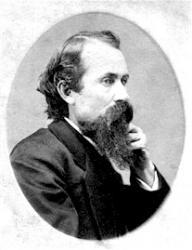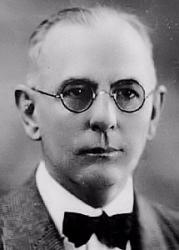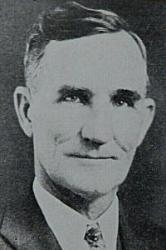Planning worship?
Check out our sister site, ZeteoSearch.org,
for 20+ additional resources related to your search.
- |
User Links
Person Results
‹ Return to hymnal




Export as CSV
Anna L. Barbauld

1743 - 1825 Hymnal Number: d57 Author of "How blest the righteous when he dies" in Songs of the Blessed Hope Barbauld, Anna Laetitia, née Aikin, daughter of the Rev. John Ailrin, D.D., a dissenting minister, was b. at Kibworth-Harcourt, Leicestershire, June 20, 1743. In 1753 Dr. Aikin became classical tutor at a dissenting academy at Warrington. During her residence there she contributed five hymns to Dr. W. Enfield's Hymns for Public Worship, &c, Warrington, 1772. In the following year these were included in her Poems, Lond., J. Johnson, 1773. In May, 1774, Miss Aikin was married to the Rev. Rochemont Barbauld, a descendant of a French Protestant family, and a dissenting minister. For some years Mr. Barbauld conducted, in addition to his pastoral work, a boarding school at Palgrave, Suffolk. From this he retired in 1785. In 1786 he undertook the charge of a small congregation at Hampstead, and from thence he passed to the dissenting chapel (formerly Dr. Price's) at Newington Green, in 1802. He d. Nov. 11, 1808. Mrs. Barbauld continued to reside in the neighbourhood until her death, March 9, 1825. In the latter part of the same year her niece published The Works of Anna Laetitia Barbauld, with Memoir, by Lucy Aikin, 2 vols., Lond., Longman, 1825. As a writer of hymns Mrs. Barbauld was eminently successful. Their use, however, with the exception of five contributed to Dr. W. Enfield's collection, is almost exclusively confined to the Unitarian hymnals of Great Britain and America. Including these hymnals, the whole of her hymns are still in common use. These hymns appeared thus:—
i. In Dr. W. Enfield's Hymns, &c., 1772.
1. Again the Lord of life and light. Easter.
2. Awake, my soul, lift up thine eyes. Conflict.
3. Behold, where breathing love divine. Christian Charity.
4. Jehovah reigns, let every nation hear. God's Dominion. A part of this was given in Collyer's Sel., 1812, No. 586, as:—
5. This earthly globe, the creature of a day.
6. Praise to God, Immortal praise. Harvest.
ii. Poems, 1773 (Preface dated Dec. 1, 1772). The whole of the above, and also:—
7. God of my life and author of my days. To God the Father. This is an “Address to the Deity," in 80 1. It is given in Martineau's Collection, 1840 and 1873. From it the following centos were given in Collyer's Selection> 1812:—
8. God, our kind Master, merciful as just.
9. If friendless in the vale of tears I stray.
iii. Poems revised 1792.
10. Come, said [says] Jesus' sacred voice. Invitation.
11. How blest the sacred tie that binds. Christian Fellowship.
12. Lo where a crowd of pilgrims toil. Pilgrimage of Life. From this is taken:—
13. Our country is Immanuel's ground [land].
iv. Leisure Hour Improved (Ironbridge), 1809.
14. Sweet is the scene when virtue dies. Death.
v. Supplement to the Unitarian Coll. of Kippis, Bees, and others, 1807.
15. When as returns the solemn day. Sunday.
16. Sleep, sleep to day, tormenting cares. Sunday.
17. How may earth and heaven unite. Worship.
vi. Works, with Memoir, 1825.
In vol. i. most of the above are reprinted, and the following are added :—
18. Joy to the followers of the Lord. Joy. (c. 1820.)
19. Pure spirit, O where art thou now. Bereavement. This is dated 1808.
20. Salt of the earth, ye virtuous few. Salt of the Earth.
21. When life as opening buds is sweet. Death. This is dated " November, 1814."
The more important of these hymns are annotated in this Dictionary under their first lines. Mrs. Barbauld's Hymns in Prose for Children, originally published in 1781, were long popular and have been translated into French, Italian, Spanish, and other languages.
-- John Julian, Dictionary of Hymnology (1907)
===================
Barbauld, Anna L., p. 113, ii. No. 18 on p. 114, i.,should be dated circa 1820. Another hymn in common use from Mrs. Barbauld's Works, &c, 1825, is, "O Father! though the anxious fear" (E. Taylor, p. 1117, in error).
--John Julian, Dictionary of Hymnology, Appendix, Part II (1907)
See also in:
Hymn Writers of the Church
Anna L. Barbauld
Aldine S. Kieffer

1840 - 1904 Hymnal Number: d146 Author of "The Christian's hope" in Songs of the Blessed Hope Full name Aldine Silliman Kiefer
Aldine S. Kieffer
Charles Walker Ray
1832 - 1917 Hymnal Number: d172 Author of "Death is only a dream" in Songs of the Blessed Hope Rv Charles Walker Ray DD USA 1832-1917. Born at Otselic, NY, he became a Baptist minister. He was educated at Hamlton College, Clinton, NY. He earned his doctorate from Monongahela College, Jefferson, PA. That school closed in 1894. He pastored at North Stonington, CT, for a number of years. He also served at Plymouth, NY. He married Julia Tracy Sheffield, and they had a son, Arthur. He wrote a number of books and song books: “Grace Vernon Bussell, the heroine of western Australia” (1878); “Spicy breezes” (1883); “The day school crown” (1892); “The revival helper: a collection of songs for Christian work and worship” (1893); “Bright blossoms of song” (1895); “Zion’s delight” (1901); “The song of songs of the King and his bride-an interpretation” (1913); “The fallacies and vagaries of misinterpretation” (1914). He died at Philadelphia, PA.
John Perry
Charles Walker Ray
Will M. Ramsey

1872 - 1939 Person Name: William M. Ramsey Hymnal Number: d135 Author of "Some glad day" in Songs of the Blessed Hope William Morgan Ramsey Born: August 24, 1872, Belton, Texas. Died: March 12, 1939, Little Rock, Arkansas. Buried: Roselawn Cemetery, Little Rock, Arkansas. Will was the son of Charles Crump Ramsey and Martha Ann Frances Burns. He married twice, to Virgie Celemma Statton and Willie Mannasas Lawing. Ramsey moved with his family to northwest Arkansas as a child. He studied music in Normal schools under Ephraim Hildebrand, Stephen Oslin, and Benjamin Unseld. He began teaching shape notes and singing while still a teenager, and became well known in singing schools throughout the American South. He went on to become president and owner of the Central Music Company in Little Rock.
© The Cyber Hymnal™ (www.hymntime.com/tch)
Will M. Ramsey
Margaret Mackay
1802 - 1887 Hymnal Number: d12 Author of "Asleep in Jesus, blessed sleep" in Songs of the Blessed Hope Mackay, Margaret, was born in 1802, and the only daughter of Captain Robert Mackay, of Hedgefield, Inverness. She was married in 1820 to Major William Mackay, of the 68th Light Infantry (afterwards Lt. Colonel) a distinguished officer who died in 1845. Mrs. Mackay died at Cheltenham, Jan. 5, 1887. In addition to various prose works Mrs. Mackay published Thoughts Redeemed; or Lays of Leisure Hours, 1854, which contained 72 original hymns and poems. [Rev. James Mearns, M.A.]
-- John Julian, Dictionary of Hymnology (1907)
Margaret Mackay
John Reynell Wreford
1800 - 1891 Hymnal Number: d121 Author of "Aurora" in Songs of the Blessed Hope Wreford, John Reynell, an English Unitarian minister, was born December 12, 1800, at Barnstaple; educated at Manchester College, and in 1826 became pastor of a Church in Birmingham. In 1831, on account of the failure of his voice, he withdrew from the active work of the ministry and, in conjunction with Rev. Hugh Hutton, established a school at Edgbaston. He wrote a History of Presbyterian Nonconformity in Birmingham, 1832, and Lays of Loyalty, 1837. He contributed fifty-five hymns to Rev. J. R. Beard's Collection, 1837. His most popular and valuable hymn is the one given in this book. The last years of his life were spent in retirement at Bristol, where he died in 1891.
—Hymn Writers of the Church by Charles Nutter
=================
Wreford, John Keynell, D.D., born Dec. 12, 1800, educated at Manchester College, York, and in 1826 succeeded the Rev. James Yates as co-pastor to the Rev. John Kentish at the New Meeting, Birmingham. In 1830 he published a translation of Cellerier's Discourse on the Authenticity and Divine Origin of the Old Testament. In the following year, in consequence of failure of voice, he withdrew from the Ministry, and in conjunction with the Rev. Hugh Hutton, Minister of the Old Meeting, opened a school at Edgbaston. In 1832 he published a Sketch of the History of Presbyterian Nonconformity in Birmingham; and in 1837, Lays of Loyalty, in celebration of the Queen's accession. He also contributed, in 1837, to the Rev. J. R. Beard's Collection of Hymns for Public and Private Worship 55 hymns, of which the following are still in common use:—
1. God of the ocean, earth, and sky. God seen in His Works. In various collections, including those by Page Hopps, G. Dawson, and others.
2. Lord, I believe; Thy power I own. For increase of Faith. In Martineau's Hymns, &c, 1840.
3. Lord, while for all mankind we pray. National Hymn. This is in a large number of collections of various denominations, and is by far the most popular of his hymns. Sometimes it begins with stanza iii., "O! guard our shores from every foe."
4. When my love to Christ[God]grows weak. Passiontide. In Longfellow and Johnson's Unitarian Hymns of the Spirit, Boston, U. S. A., 1864, "When my love to God grows weak." This is repeated in Martineau's Hymns, &c, 1873.
Dr. Wreford was also the author of several volumes of verse, chiefly devotional. The latter years of his life he spent in retirement at Bristol, and died there in 1881.
[Rev. Valentine D. Davis, B.A.]
-- John Julian, Dictionary of Hymnology (1907)
John Reynell Wreford
B. B. Edmiaston

1881 - 1955 Hymnal Number: d70 Author of "O what a wonderful thing" in Songs of the Blessed Hope Benard Bates Edmiaston Born: July 16, 1881, Bennetts, Baxter County, Arkansas. Died: December 2, 1964, Bronte, Texas. Buried: Fairview Cemetery, Bronte, Texas. Bernard was the son of David W. Edmiaston and Georgia Ann Fluty, and husband of Ella Allen. He studied music under Rufus Turner, Franklin Eiland, W. H. Lawson, Berry McGee, Emmett Dean, G. W. Fields, John Herbert, and many others, and taught singing schools for at least 38 years. He wrote and published songs through the Trio Music Company, Waco, Texas, and was director of the Southern Development Normal School of Music in Waco.
© The Cyber Hymnal™ (www.hymntime.com/tch)
B. B. Edmiaston
J. B. Atchinson
1840 - 1882 Hymnal Number: d103 Author of "There is rest, there is peace" in Songs of the Blessed Hope Atchinson, Jonathan Bush, born at Wilson, New York, Feb. 17, 1840, and "licensed as a Methodist Preacher," Sept. 6, 1874. Of his hymns the following are the best known:—
1. Behold the stone is rolled away. [Easter.] This was Mr. Atchinson's first hymn. It appeared in the Sunday School Times, Dec. 1874. It is not in use in Great Britain.
2. Fully persuaded, Lord, I believe. [Faith.] Written in 1874 or 1875, and first published in Gospel Hymns, No. 1. It is given in I. D. Sankey's Sacred Songs & Solos, No. 149, with music by W. F. Sherwin.
3. I have read of a beautiful city. [Heaven.] Written about the same time as the former, and published in Gospel Hymns. It is given in I. D. Sankey's Sacred Songs & Solos, No. 403, with music by O. F. Presbrey.
4. O crown of rejoicing that's waiting for me. [The Reward .] This hymn is also in I. D. Sankey's Sacred Songs & Solos, No. 174, where it is set to music by P. Bliss. [Rev. F. M. Bird, M.A.]
-- John Julian, Dictionary of Hymnology (1907)
J. B. Atchinson
Mrs. A. S. Bridgewater
1873 - 1957 Person Name: A. S. Bridgewater Hymnal Number: d246 Author of "How beautiful heaven must be" in Songs of the Blessed Hope Bridgewater, Cordie. (North Carolina, ca.1873-ca.1957). Baptist. According to J. Wiegand, was living in Alabama (age 36) at the time of the 1910 census. Wife of A. Samuel Bridgewater.
Leonard Ellinwood, DNAH Archives
Mrs. A. S. Bridgewater
A. J. Sims
1884 - 1969 Hymnal Number: d210 Author of "I'm holding [trusting] to [that] the unseen hand" in Songs of the Blessed Hope Albert J. Sims. He was an Elder in the Primitive Baptist Church, being licensed by the Euharlee assocation in 1925 and serving many churches in northwest Georgia until his death. He and his wife Clara resided in Dalton Georgia.
Austin Brown
A. J. Sims


 My Starred Hymns
My Starred Hymns


